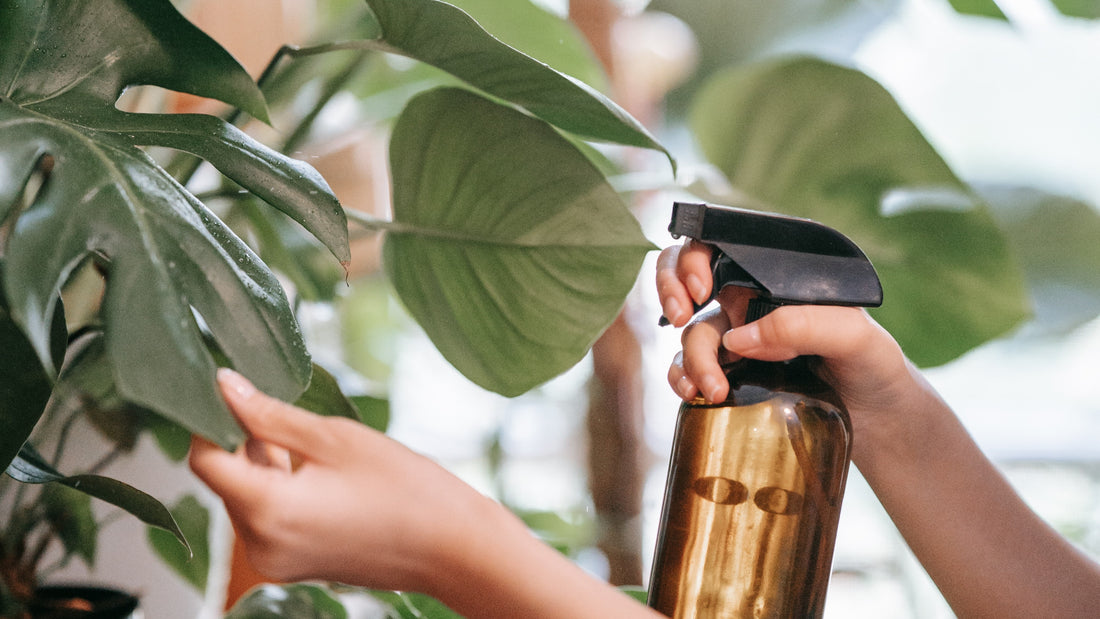The Best Fertilizer for Monstera Plants: Choosing the Right Plant Food for Healthy Growth
Introduction
If you're a proud owner of a Monstera plant, you already know that these tropical beauties can transform your home into a lush indoor jungle. But to keep your Monstera thriving, it's essential to provide it with the right nutrients. Fertilization is a crucial aspect of Monstera plant care, and choosing the best fertilizer can sometimes be overwhelming. In this guide, we'll help you pick the right plant food to ensure healthy growth for your Monstera.
Understanding Monstera Plant Nutrient Needs
Before diving into the world of fertilizers, it's essential to understand the specific nutrient needs of your Monstera. This tropical plant requires a mix of macronutrients and micronutrients to grow and develop properly.
Essential nutrients for healthy Monstera plants
1. Macronutrients: Nitrogen (N), Phosphorus (P), and Potassium (K)
Monstera plants need these three primary nutrients in large quantities. Nitrogen is vital for lush, green foliage, while phosphorus promotes strong root growth and potassium aids in overall plant health and resilience.
2. Micronutrients: Calcium, Magnesium, Iron, etc.
Although needed in smaller amounts, micronutrients play a vital role in maintaining your Monstera's overall health. Calcium and magnesium contribute to strong cell walls and robust root systems, while iron is necessary for chlorophyll production and photosynthesis.
Types of Fertilizers for Monstera Plants
There are two main types of fertilizers available for Monstera plants: organic and synthetic. Each type has its own benefits and drawbacks.
Organic fertilizers for Monstera plants
Benefits and drawbacks
Organic fertilizers are derived from natural sources like compost, worm castings, and fish emulsion. These fertilizers provide a gentle, slow-release of nutrients that won't harm your Monstera's delicate roots. Additionally, they improve soil structure and encourage beneficial microorganisms. However, organic fertilizers can be more expensive and may require more frequent applications than synthetic options.
Examples
- Compost: Rich in nutrients, compost can be added to your Monstera's potting mix or used as a top dressing.
- Worm castings: Full of beneficial microorganisms, worm castings can be mixed into the potting mix or applied as a top dressing.
- Fish emulsion: A liquid fertilizer that provides a quick boost of nutrients, fish emulsion can be diluted and applied directly to your Monstera's soil.
Synthetic fertilizers for Monstera plants
Benefits and drawbacks
Synthetic fertilizers, such as liquid fertilizers and slow-release granules, offer a concentrated source of nutrients that can be tailored to your Monstera's specific needs. They're generally more affordable and easy to apply. However, synthetic fertilizers can cause salt buildup and root burn if not used correctly, so it's essential to follow the manufacturer's instructions carefully.
Examples
- Liquid fertilizers: Mix the recommended amount with water and apply to your Monstera's soil according to the label's instructions.
- Slow-release granules: Sprinkle the granules on top of the soil or mix them into the potting mix, ensuring they release nutrients over time.
How to Choose the Best Fertilizer for Your Monstera Plant
When selecting the perfect fertilizer for your Monstera, consider the plant's specific needs, the balance of nutrients, and the fertilizer form.
Assessing your Monstera's specific needs for proper nutrition
-
Age and growth stage: Young Monstera plants require more nitrogen to support rapid foliage growth, while mature plants benefit from a balanced blend of nutrients that encourage overall health and resilience.
-
Soil type: The type of potting mix you use can affect the nutrient availability for your Monstera. A well-draining, high-quality potting mix ensures that your plant can access the nutrients it needs.
-
Environmental factors: Light, temperature, and humidity can all influence your Monstera's nutrient requirements. In low-light conditions, your Monstera may require less frequent fertilization, while higher temperatures and humidity can increase nutrient uptake.
Balancing nutrients for optimal Monstera growth
A balanced fertilizer with a 3:1:2 or 1:1:1 ratio of nitrogen (N), phosphorus (P), and potassium (K) is ideal for most Monstera plants. However, you may need to adjust this ratio depending on your specific plant's needs. Look for a fertilizer that also contains essential micronutrients like calcium, magnesium, and iron.
Choosing the right form of fertilizer
Whether you prefer organic or synthetic fertilizers, consider the application method that works best for you and your Monstera plant. Liquid fertilizers and slow-release granules are popular choices, as they're easy to apply and allow for precise control over nutrient delivery.
Tips for Fertilizing Your Monstera Plant
Now that you know how to choose the best fertilizer for your Monstera, here are some tips to help you apply it correctly:
-
Follow the manufacturer's instructions: Always use the recommended amount of fertilizer and adjust the frequency of application based on your Monstera's specific needs.
-
Water before fertilizing: Ensure your Monstera's soil is moist before applying fertilizer to avoid root burn and facilitate nutrient absorption.
-
Monitor your Monstera's health: Keep an eye on your Monstera's growth and overall health to determine if adjustments to your fertilization routine are necessary.
-
Flush the soil periodically: Flushing your Monstera's soil with water every few months can help prevent salt buildup from synthetic fertilizers, keeping your plant healthy and happy.
Conclusion
Providing your Monstera with the right nutrients is essential for its growth and health. By understanding its specific nutrient needs, choosing the best type of fertilizer, and applying it correctly, you'll ensure your Monstera plant thrives in your indoor jungle. Remember, a healthy Monstera is a happy Monstera!












